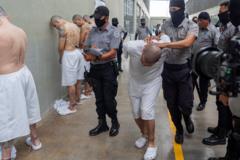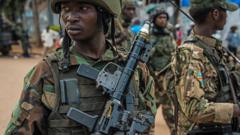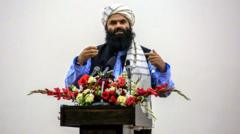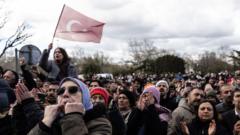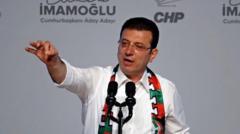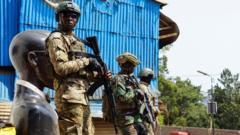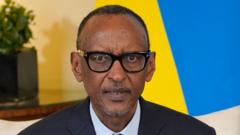Three Americans jailed for their involvement in a coup attempt in the Democratic Republic of Congo have had their death sentences commuted to life imprisonment. This decision comes as diplomatic relations between the US and DR Congo are in focus, coinciding with a visit from a US advisor for Africa.
Clemmency Granted: Death Sentences of Three Americans Over DR Congo Coup Case Reduced to Life Imprisonment

Clemmency Granted: Death Sentences of Three Americans Over DR Congo Coup Case Reduced to Life Imprisonment
The Democratic Republic of Congo has commuted the death sentences of three Americans involved in a failed coup, marking a significant response ahead of a critical diplomatic visit.
In a significant legal development, three Americans who faced death sentences following their involvement in a failed coup attempt in the Democratic Republic of Congo (DRC) have had their sentences commuted to life imprisonment. The presidency announced this decision, highlighting a shift in judicial stance as it comes in advance of a visit by Massad Boulos, the newly-appointed US senior advisor for Africa.
The three individuals—Benjamin Zalman-Polun, Marcel Malanga, and Tyler Thompson—were among 37 people sentenced to death by a military court in September of the previous year. They were accused of orchestrating attacks on both the presidential palace and the home of a presidential associate in May. Their convictions included charges of criminal conspiracy and terrorism, which they refuted.
Tyler Thompson’s family expressed confusion over his presumed involvement in the coup. Meanwhile, the suspected mastermind of the plot, Christian Malanga, a US citizen with Congolese roots, was killed during the assault, along with five others.
The military trial attracted considerable attention as it involved 51 defendants, with proceedings broadcasted on national television and radio. Out of those tried, 14 individuals were acquitted, found to have no ties to the coup attempt, while the rest faced varying penalties.
Despite the official lifting of a two-decade moratorium on the death penalty in DR Congo, the government has not executed any prisoners post-commutation. President Félix Tshisekedi signed the orders for clemency for the three Americans, with spokesperson Tina Salama emphasizing their “individual clemency.” This executive action has been interpreted by legal experts as a hopeful sign for future judicial reforms.
Additionally, another defendant, Jean-Jacques Wondo, a citizen of both Belgium and the DRC, had his death sentence commuted and was transferred to Belgium due to health issues earlier this year. However, it remains uncertain whether the Americans might also be moved back to serve their sentences in the US or if other condemned individuals, which include foreign nationals, will similarly benefit from a clemency decision.
The coup attempt unfolded on May 19, when armed individuals in military uniforms attacked several key political locations, leading to a chaotic showdown with security forces. The implications of this case extend into broader diplomatic relations, as international observers note the evolving legal landscape in the DRC amidst ongoing regional tensions.



